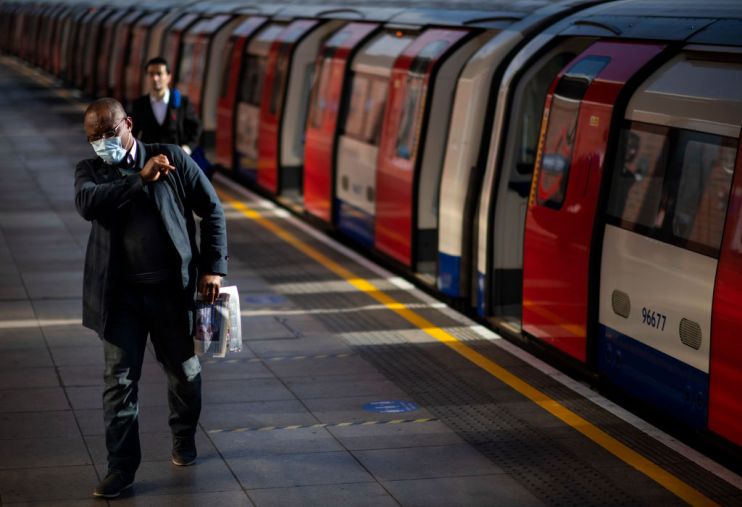Exclusive: Business chiefs call for long-term TfL funding to support return to work

The government must agree a sustainable long-term funding deal for Transport for London (TfL) to help support the capital’s post-pandemic recovery, business chiefs have urged.
In a new report seen by City A.M., lobby group London First said maintaining public transport services in the capital was “vital” in rebuilding confidence and supporting the shift to flexible working.
In June the government inked a £1.08bn emergency funding deal with TfL, taking its total support since the start of the pandemic to over £4bn.
But mayor Sadiq Khan described the short-term agreement as a “sticking plaster” while RMT union boss Mike Lynch branded it a “disgraceful stitch up of a deal”.
In addition to public transport support, London First called for a “well-funded coordinated campaign” to help draw people back into the city centre and support footfall to the retail, hospitality and cultural sectors.
The business group also called for a programme of adult retraining in the capital to counteract large numbers of job losses.
“The pandemic has accelerated trends in flexible working and the businesses that will grow at pace will be those that harness and embrace these changes. But there is continuity as well as change,” said John Dickie, chief executive of London First.
“Many people have been in their place of work throughout the pandemic — notably the key workers who have kept our city going. And most businesses which have been largely working at home want to get their people together as soon as they can: to share, to collaborate and to create.
“The sooner we can get people back to their workplace, the swifter we can support the ecosystem that makes London what it is — the bars, the restaurants, the galleries — who are still there for us, but won’t be if we leave it too long.”
In the report, which was conducted with EY, London First laid out guidelines for businesses on how to support new ways of working.
It set out five so-called employee personas — team builder, career builder, joiner, carer and sharer — for companies to consider as part of their return to the office plans.
It showed how each persona could be supported in the workplace, as well as providing an assessment of the business viability for certain roles to be conducted remotely.
“Large-scale remote working brough greater flexibility and a better work-life balance for many people. But it’s also important that the City continues to value the sense of belonging and creativity that can come from people working together, in person,” said Caroline Artis, London senior partner at EY.
“This will require a new ‘hybrid’ approach to working for many companies, where individual preferences align with business and client needs.”